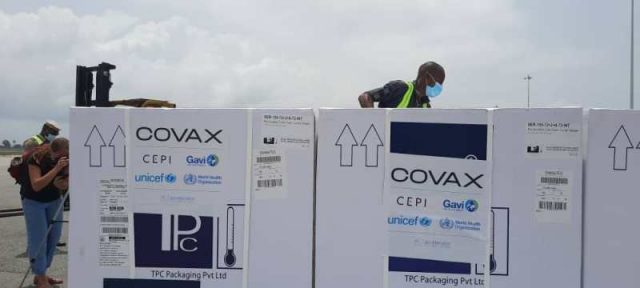…Supports low- and middle-income countries’ efforts to overcome demand-side barriers to vaccination to reach at-risk populations
WED 27 APRIL, 2022-theGBJournal | The Rockefeller Foundation announced the launch of the Global Vaccination Initiative, a USD 55 million investment over two years to support country-led efforts to fully vaccinate 90% of the most at-risk populations in Africa, Asia, Latin America, and the Caribbean.
With this new initiative, the Foundation is focusing its global health resources on supporting locally-driven interventions to increase vaccine demand – access, trust, and information – that have been consistently underestimated, misunderstood, and underfunded in the global Covid-19 response to date, while leveraging data from trusted, credible sources to strengthen health systems and ensure they are meeting the needs of the most vulnerable populations.
Covid-19 vaccines still represent the world’s best chance at sustainably managing and overcoming the pandemic, yet two years into the pandemic, vaccination rates remain severely inequitable: only 15% of people in low-income countries have received at least one dose, while high-income countries deploy third or even fourth booster shots.
“The world has every tool it needs to make Covid-19 endemic for everyone, everywhere — but only if those tools are in the hands of the people who need them most,” said Dr. Rajiv J. Shah, President of The Rockefeller Foundation. “With this new commitment, The Rockefeller Foundation will help countries across the Global South reach at-risk populations, simultaneously increasing Covid-19 vaccination rates and building health systems capable of addressing future Covid-19 outbreaks and other public health threats.”
While global supplies of vaccines increase and stabilize, challenging demand-side issues are preventing countries from accelerating vaccination campaigns. The Access to COVID-19 Tools Accelerator estimates that an additional USD 6.8 billion is needed to support Covid-19 demand generation and expects funding to come directly from countries themselves along with development banks and other international grant financing. This is occurring at a time when the World Bank estimates that low-income nations need 24-30% of their GDP to respond to and recover from the pandemic’s health and economic crises, but with interest rates rising, their external debt outstanding has grown to more than two-thirds of GDP.
In response, The Rockefeller Foundation’s Global Vaccination Initiative will invest in projects to generate vaccine demand by focusing on three levers:
1-Data and digital tools: Through a demonstrate-and-scale model, investments will support data-driven solutions – applying the latest socio-behavioral insights, digital tools, and data analytics – to provide decision-makers with actionable insights relevant to their contexts and communities to inform the most effective approaches to increase vaccination for most vulnerable groups like at-risk, older adults and frontline health workers.
2-Capacity building: To ensure that these data insights are effectively incorporated into vaccination strategies, the Foundation is working with partners on the ground to increase community engagement and mobilization, and build tailored, durable solutions that will prepare health systems for wide-ranging health campaigns for Covid-19 and beyond.
3-Financing: To sustainably support these activities and achieve long-term change, the Foundation will advocate for increased financing to address vaccination demand challenges and additional flexibility in the use of funding to strengthen local health system capabilities for routine immunization and other essential health services.
“As Covid-19 vaccines are now increasingly available to lower- and middle-income countries, the Global Vaccination Initiative is laser-focused on closing the gap in vaccination rates that exists between richer and poorer countries by addressing the root cause: demand,” said Dr. Bruce Gellin, The Rockefeller Foundation’s Chief of Global Public Health Strategy. “Our approach centers on working together with countries to understand the drivers of demand and barriers to vaccination – only then can we design innovative solutions to swiftly get doses to the most vulnerable communities.”
Impact Underway
The Rockefeller Foundation’s Global Vaccination Initiative has already engaged several organizations to implement its strategy, including:
United Nations, in collaboration with Purpose, to support Verified, a network of trusted messengers, citizen volunteers and trained media to spread accurate, lifesaving information about Covid-19 vaccinations with the goal of saving lives and countering mis- and disinformation in Africa, Asia, and Latin America. Notably, Brazil’s #AllForVaccines movement became a Twitter trending topic with over 50,000 interactions, South Africa’s Zwakala campaign was officially adopted by South Africa’s national government, and India’s hyperlocal campaigns activated 150 community leaders, 10,000 vaccinated auto rickshaw drivers and street vendors, and primary health care workers to disseminate urgent messaging across 33 informal settlements in Delhi.
-COVID Global Accountability Platform (COVID GAP), a partnership between Duke University and COVID Collaborative, to provide evidence-based tracking, insights, and recommendations that collectively help hold the world accountable to meet pressing needs, deliver on commitments, and accelerate the end of the pandemic. COVID GAP released a landmark report in March 2022 calling for an urgent shift in the world’s response to the pandemic from emergency crisis management to a sustainable control strategy that supports country-driven goals that reflect local realities and priorities. This includes prioritizing fully vaccinating (including boosters) high-risk populations with the aim of reaching 90% vaccination coverage.
-Social Science Research Council (SSRC), to launch The Mercury Project, a global consortium of researchers dedicated to identifying evidence-informed tools, methods, and interventions that drive behavior change and combat vaccine mis- and dis-information. Responding to calls from the World Health Organization, the U.S. Office of the Surgeon General, and the Aspen Institute’s Commission on Information Disorder, the consortium will be an essential resource for social media and technology companies and for global policymakers as they build an information ecosystem that supports the sharing of accurate and effective health information for both emergency and routine public health. Research team selection is being finalized and grant awards will be announced this summer.
-Africa Infodemic Response Alliance (AIRA), a platform co-hosted by the WHO Regional Office for Africa, to support the development and testing of new data-driven tools and systems to help field teams in the African region anticipate and respond to waves of health disinformation in real-time.
-AVAC, in partnership with Internews, to grow its existing Media Science Café program in Kenya, Uganda, Zambia and Zimbabwe, to bring journalists together with researchers, implementers, civil society, regulators and policy makers to build relationships that will foster accurate reporting on Covid-19 in those countries. Partners include: Media for Environment Science, Health & Agriculture (MEHSA) in Kenya, Health Journalist Network in Uganda (HEJNU), Media Science Cafe (MESICA) in Zambia and Health Communicators Forum Zimbabwe through a partnership with the Humanitarian Information Facilitation Centre.
-Pulitzer Center to expose the interconnected nature of the systemic inequities made plain by the Covid-19 pandemic – from access to and acceptance of vaccinations to related health-system inequities – bringing these stories to diverse audiences through trustworthy journalism and innovative public engagements.
The Global Vaccination Initiative, which is part of the Foundation’s historic USD 1 billion commitment to an inclusive, green recovery from the Covid-19 pandemic, is informed by lessons learned from Precision Public Health, an initiative the Foundation launched in 2019 to modernize public health and provide more equitable public health outcomes, and the Equity-First Vaccination Initiative, which supported hyper-local, community-led vaccination strategies to reach 2 million people of color in 5 U.S. cities.
It also builds on the Foundation’s century-long legacy in global public health. Investments established the first schools of public health and the global campaign against hookworm; seeded the development of the yellow fever vaccine; supported translational research for tools including penicillin; and spurred AIDS vaccine development. Learn more about the Global Vaccination Initiative and its current grantees here.
Twitter-@theGBJournal|Facebook-The Government and Business Journal|email: gbj@govbusinessjournal.ng|govandbusinessj@gmail.com










